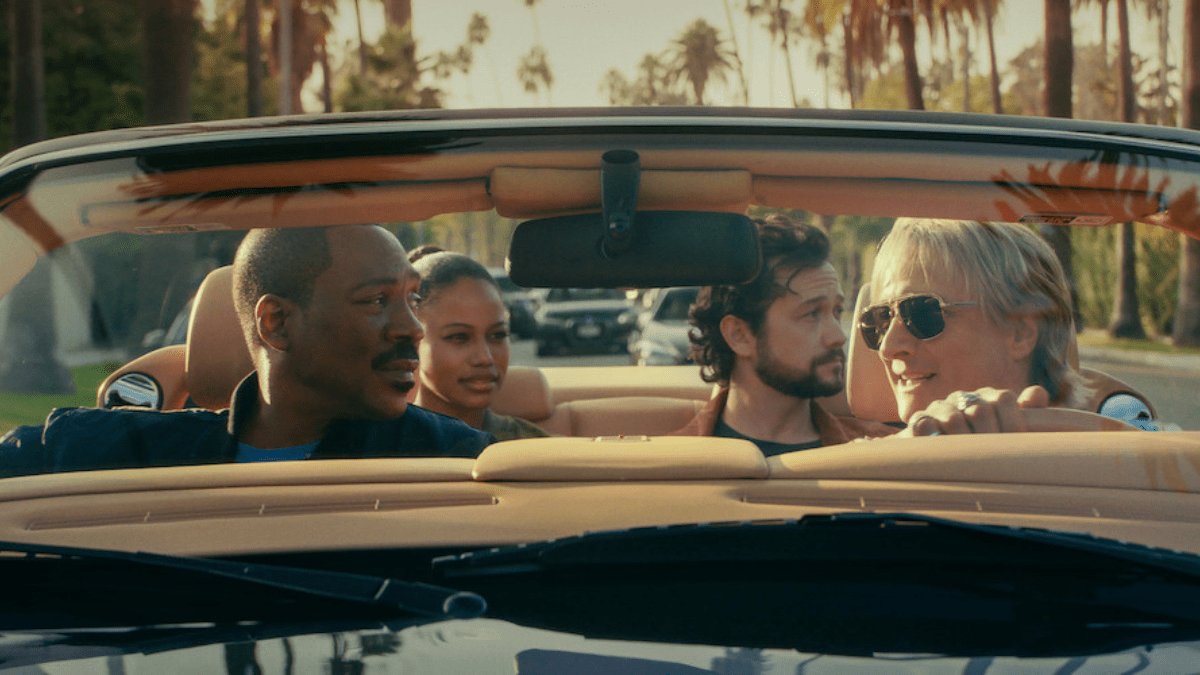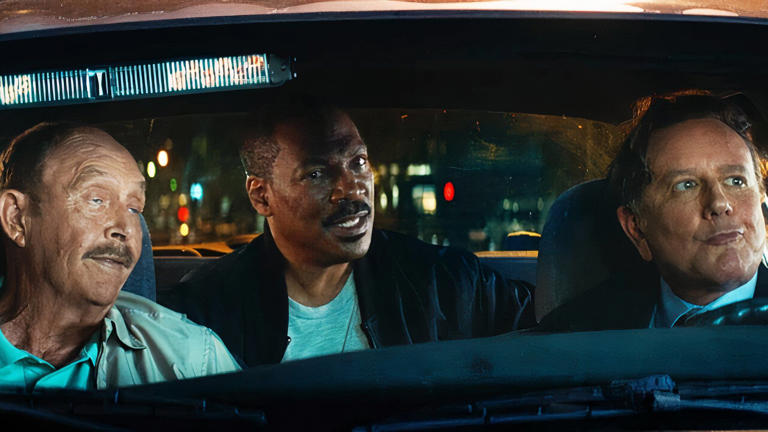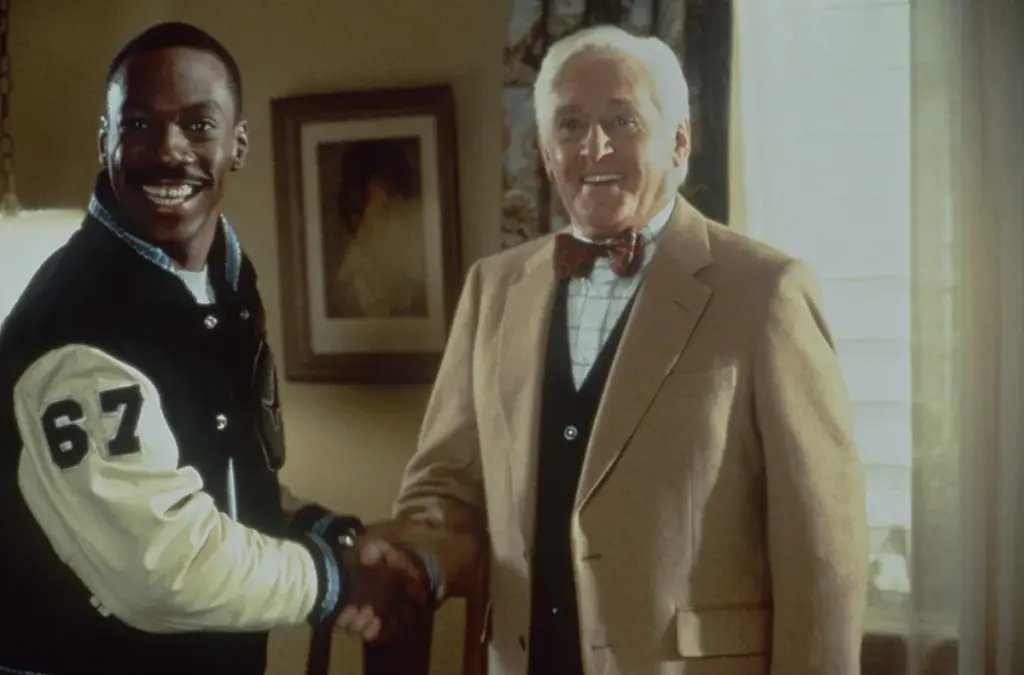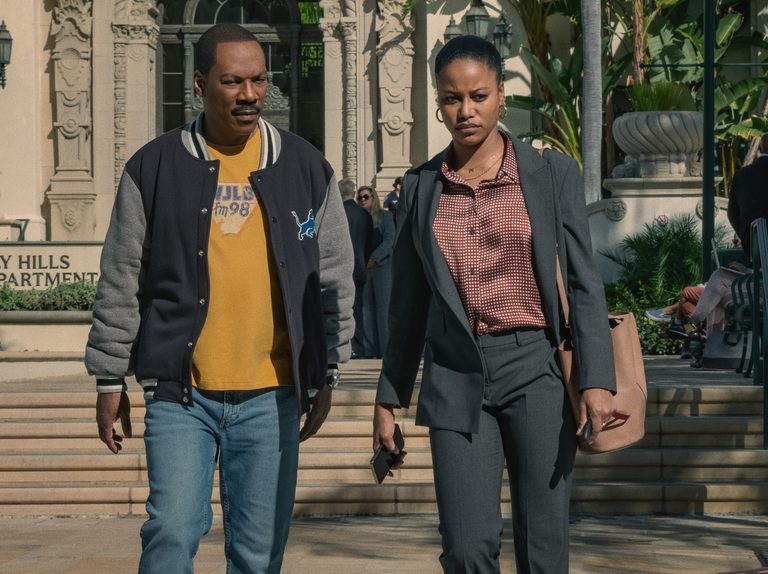‘Beverly Hills Cop 4’ Review: A Healthy Dose of Nostalgia

It’s a question that’s long puzzled Hollywood: How do you make a new ‘Beverly Hills Cop’ movie? Brett Ratner grappled with this for years, and his 2010 interview with Empire magazine revealed his struggles. “Like, where do we start?” he wondered. Where, indeed? Is Axel retired? Is he in Beverly Hills? On vacation? And what about Judge Reinhold reprising his role as Billy Rosewood?
In hindsight, it seems overly complicated. From the moment Netflix’s ‘Beverly Hills Cop: Axel F’ begins, you realise the solution was to simply recreate the magic of the original. The classic Don Simpson/Jerry Bruckheimer Films lightning bolt logo appears, followed by the iconic sax riff of ‘The Heat Is On.’ Everyone involved knew exactly what they were doing.
Also Read: ‘A Family Affair’ Review: Hit or Miss?

The original ‘Beverly Hills Cop’ was released 40 years ago, a fact that might startle those who saw it in theatres and those discovering Eddie Murphy was only 23 at the time. If you weren’t there, ‘Beverly Hills Cop: Axel F’ is a time machine, taking you back to when synth-pop ruled, a banana could disable a car, and a Beverly Hills hotel suite cost $235 a night (though prices have soared since then, as ‘Axel F’ humorously notes).
The formula for making a ‘Beverly Hills Cop’ movie is straightforward: start in Detroit, Axel’s hometown, with an action-packed chase scene involving cars, trucks, and in ‘Axel F,’ a snow plough. Axel always operates outside the rule book, and after the inevitable chaos, his boss (this time Paul Reiser) chews him out. Yet, Axel is always right, especially when everyone says he’s wrong—that’s part of his charm.

Then, something draws Axel to L.A., specifically 90210. In ‘Axel F,’ Billy Rosewood (Judge Reinhold) is in danger, uncovering a police cover-up, and Axel’s estranged daughter, Jane (Taylour Paige), a criminal defence attorney, is caught up in the mess too. Stakes set, Axel heads to Beverly Hills, using his wit to navigate trouble, interact with Bronson Pinchot’s Serge, and teach the local cops a thing or two.
He even addresses racial issues with sharp humour. Told by a police officer not to reach for his ID, Axel quips, “I’ve been a cop for 30 years. I’ve been Black a whole lot longer. Trust me. I know better.”
The climax features the usual action, complete with sunglasses-wearing gunplay, more synth-pop, and a reunion with Murphy, Reinhold, and John Ashton (returning as Det. Taggart). The film ends with a group hug and roll credits.

The first “Beverly Hills Cop” was even nominated for an Oscar for its screenplay, despite Murphy improvising much of his dialogue, leaving co-stars struggling to keep straight faces. Murphy’s improvisation was that good.
You might not remember the third ‘Beverly Hills Cop’ movie from 1994, which Murphy has called “garbage.” In ‘Axel F,’ Joseph Gordon-Levitt’s character flips through Axel’s file and comments, “And then, ’94. Not your finest hour.”

Murphy embraces his age, and the film focuses on Axel reconnecting with his headstrong daughter, amidst the usual action. While ‘Axel F’ might seem like a calculated cash grab, Murphy’s affection for Axel Foley shines through. From the start, Axel’s charm lies in his ability to connect warmly with everyone. Even the villains like him.
As Axel drives through Detroit in his blue Chevy Nova during the new film’s opening credits, the city’s residents smile, wave, and sometimes flip him off. They’re glad to see him—and so are we.








